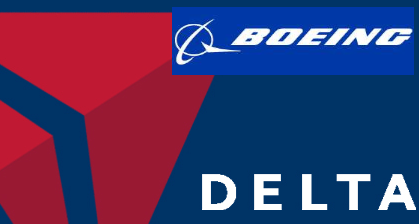Congress Appears Ready To Kick The Can Down The Road On Key Support Measure For Boeing

First, a quick primer on the Export-Import Bank (Ex-Im, in short). Here’s a statement directly from their website:
The Export-Import Bank of the United States is the official export credit agency of the United States. Our mission is to ensure that U.S. companies — large and small — have access to the financing they need to turn export opportunities into sales. Ex-Im Bank does not compete with private institutions. We fill gaps in the trade finance market by working with lenders and brokers to ensure that U.S. businesses get what they need to sell abroad and be competitive in international markets.
One of the biggest uses of the Ex-Im Bank is providing financing to foreign countries to buy Boeing airplanes. It’s been around for 80 years, with the goal of creating/preserving US jobs by giving US companies a stronger ability to sell goods abroad. Many other countries in the world offer assistance, large and small, to their companies. For example, Airbus gets significant support from the EU in a number of different ways. Boeing and Airbus, along with the countries that support them, have fought for years over whether the amount of support the opposite gets is unfair.
For the first time in as long as I can remember, there is significant opposition to the charter and direction of the Ex-Im bank by at least one large US company, Delta Airlines. Their argument is that cheap financing to airlines outside the US has made it easier for those airlines to eat Delta’s (and other US airlines) lunch when it comes to international flights. By being able to buy cheap planes from Boeing, they’re able to expand at a more rapid rate and provide newer planes that may also be cheaper to operate. Essentially, the CEO of Delta thinks that he should be able to get as good a price as any other airline in the world for his Boeing craft.
Is he right? It’s a good question. There’s been at least some thawing of his position recently. It appears that Delta is most staunchly opposed to the Middle East carriers, like Emirates, borrowing from Ex-Im, in that they have significant resources (oil money) in their own country to fund their operations.
In a vacuum, I don’t necessarily think it’s a bad thing for a US-based airline to have access to the same sort of discounts or financing that a foreign airline does. After all, Boeing selling a plane creates jobs whether it flies for a US-based carrier or under a foreign flag.
But, the charter for the Ex-Im Bank doesn’t really allow it to compete with private lenders. It’s not necessarily a bank of last resort, but it’s not meant to be a primary source of funding for goods to be sold in the US by US manufacturers.
Does that mean there should be Ex-Im reform? I’m not against it, but I don’t think Ex-Im should go away. I say this narrowly from the perspective of someone who’s a Boeing supporter. If Airbus is going to get outsize support to sell planes from the EU, we should be well-armed to do the same.
There’s also the question of whether this is the best way to spend our tax dollars, something I can’t say I have a crystal ball on.
This may be a simplistic approach to a complex problem, but Delta’s concerns could be answered in other ways. If buying cheap planes really will fuel more jobs for US-based airlines, then a tax credit for the purchase of such goods from domestic suppliers (Boeing) could serve the same purpose as financing from Ex-Im.
At any rate, the bottom line is that we’ve got another 9 months to stake out positions on this fight, given the recent short-term authorization. It’ll be interesting to see how it plays out.
Do you have an opinion on Ex-Im Bank?

First step is to not provide ExIm financing for airlines in countries with developed financial markets, like all the Mid Eastern slave states have.
Second step to to stop providing ExIm financing for all widebodies
Third step is to stop all ExIm financing for commercial aircraft
–OR–
Allow US airlines to use ExIm to finance
I’m in favor of either of those, but the current path of providing it intl carriers and not US carriers is no sustainable and is total BS to begin with.
I think that ExIm should continue to exists for many industries; aircraft is not one of them.
Historically, it was very difficult to arrange financing for aircraft, especially for international carriers, because of the difficulty in enforcing security arrangements across borders (i.e. you might have 1st charge on the aircraft in the US, but that doesn’t help you if an airport in South Africa seizes the plane). Add in the high rate of failure in the aviation sector, and you have the perfect storm of things not to lend money for.
However, that changed with the Cape Town Treaty that came into effect in 2006 (and really took off in 2009-2011 when a bunch more countries ratified it). Now there is a common set of rules for how asset seizures are handled and how competing international security interests determine priority. The end result is that aircraft financing is infinitely easier to arrange today than in the past and is readily available to most purchasers. As a result, I don’t think that ExIm has any further role to play in this particular industry.